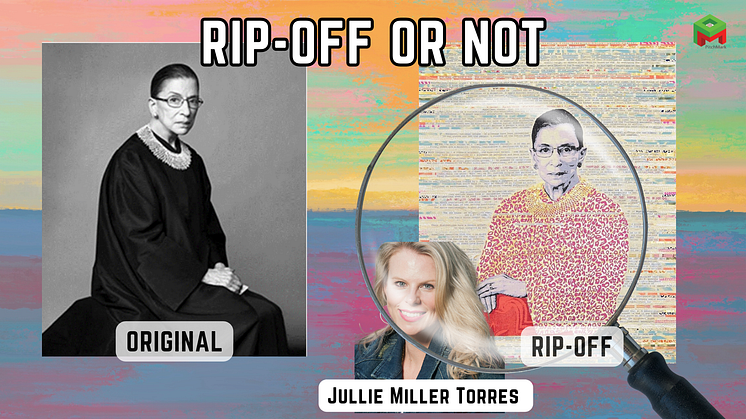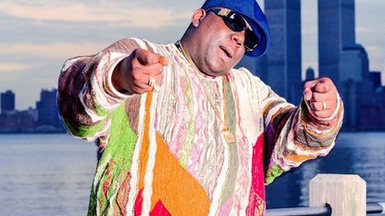
News -
Court dismisses lawsuit filed against artist Julie Torres for using the late Justice Ruth Bader Ginsburg’s photo
An Atlanta federal judge dismissed a copyright infringement claim brought against Georgia artist Julie Torres for using a picture of the late Justice Ruth Bader Ginsburg, on the grounds that the photography agency Creative Photographers Inc. lacked legal grounds to bring the lawsuit.
In November 2021, the agency filed a lawsuit against Torres for not seeking prior permission to use the late U.S. Supreme Court Justice's photograph that was taken by Ruvén Afanador in 2009.
According to Creative, Torres created screen prints, mixed media pieces, and limited edition prints of a Justice Ginsburg photo, and sold her creations for about US$12,000 per work.
Creative also alleged that Torres failed to acknowledge or credit the photographer and purposefully left out his name and copyright information.
Moreover, Torres approved of the public exhibition of her artwork featuring Afanador's photograph.
The lawsuit, however, did not include the art galleries as parties.
Torres moved to reject the agency's copyright infringement suit, contending that the commercial photography agency lacked standing because it is not the copyright owner of the image in question.
As stated in the Copyright Act, a plaintiff must be the legal or beneficial owner of an exclusive interest in a protected work in order to have statutory standing to file an action for copyright infringement.
However, according to Creative, its contract with Ruvén Afanador gave the company the sole authority to not only sell but to also license the artist's images.
The trial judge determined that the agreement between Creative and Afanador simply designates the company as the latter's exclusive agent rather than his exclusive licensee.
Even if the agreement gave Creative an exclusive license, it does not say that the agency has “the exclusive right to authorize the preparation of derivative works based upon the copyrighted work.”
Unless the plaintiff genuinely owns the right in question, they cannot file a lawsuit for infringement of the right to create derivative works.
To put it another way, the transfer of one exclusive right does not give the holder the power to enforce an altogether different exclusive right.
The court declined to accept Torres' claim of fair use, stating that it is incorrect to examine the affirmative defense of fair use on a request to dismiss, since a fair use defense is only considered in connection with a determination of infringement. Absent the establishment of an infringement, there is no need to consider any potential defense.
PitchMark previously covered a story about Singaporean photographer Jingna Zhang who filed a lawsuit against Luxembourg-based artist Jeff Dieschburg, alleging that he painted an image that was almost exactly like one she took in the past. However, the district court in Luxembourg dismissed her lawsuit on the grounds that the photograph lacked originality.
PitchMark helps innovators deter idea theft, so that third parties that they share their idea with get the idea but don’t take it. Visit PitchMark.net and register for free as a PitchMark member today.




